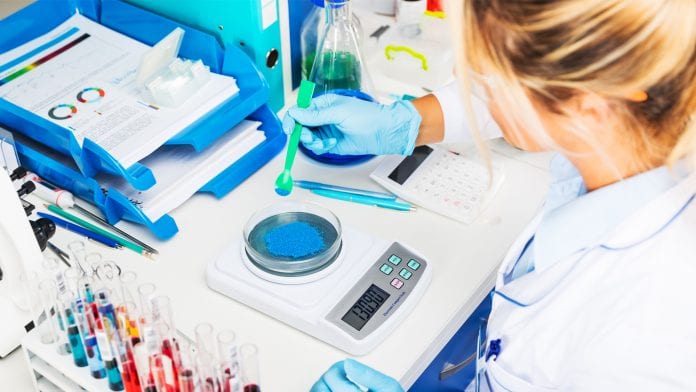
Market research firm Global Market Insights explores global drug shortages and the rising adoption of customised medicine in developed regions.
Compounding is one of the earliest known practices in medicine. As far back as six decades ago, almost half of all medical prescriptions were compounded or developed by pharmacists. As the medical industry went through rapid evolution, however, pharmacists began to gravitate more towards dispensing pre-made medications, rather than compounding them.
While the shift towards mass production of medicines, in standardised dosages and strengths, helped the industry cater to a wider population base, the need for more specialised dosages or individualised dosing regimens remains prevalent even in recent years. In the modern era, particularly during the ongoing coronavirus health crisis, this need has culminated in a renewed focus on the compounding pharmacies market, as the demand for targeted and abundant medications witnesses an unprecedented upsurge. While most modern pharmacies provide compounding to some degree, the process is mostly carried out in specialised facilities that are equipped with and trained to handle safe and efficient compounding of medicines.
Essentially, compounding pharmacies – also known as compound pharmacies – are facilities that undertake the entire production process for certain medications from start to finish. Traditionally, pharmacists dispense pre-made medicines according to the customers’ prescriptions. However, at compounding pharmacies, the medications are customised by the pharmacist depending on the unique needs of each individual patient, provided that the required drug is commercially unavailable. Compounding pharmacies keep the necessary ingredients for various therapies on hand and customise the medications in line with the needs of individual patients when required.
In terms of sterility, compounded medications can be either sterile, such as injections for the blood or body tissues, as well as eye-related therapies, or non-sterile, such as creams, ointments, capsules or liquids required for areas which do not need complete sterility. Tablets and pills, however, are rarely compounded.
While compound pharmacies are not exactly obsolete, in comparison with conventional pharmacies they are far fewer in number. In fact, according to an American Pharmacists Association report, of over 56,000 community pharmacies in the US only around 7,500 feature specialised compounding services. Despite this, compounding pharmacies do represent nearly 3% of the overall drug dispensation in the United States.
Compounded drugs are generally exempt from FDA approval, and are instead regulated via state pharmacy boards, based on United States Pharmacopoeial (USP) Convention standards. Certain large-scale sterile laboratories which are registered outsourcing facilities, or facilities that ship products between states, are regulated by the Drug Quality and Security Act of the Food and Drug Administration (FDA).
Shortages plague the medical industry amid the ongoing COVID-19 crisis
Drug shortages have been a highly prevalent issue in the medical industry for decades. These shortages are brought forth by several different factors, including inadequate raw material supply or availability, issues in manufacturing, procurement or legislative activities, or discontinuation of drugs from the market, to name a few.
In recent months, a major cause of medicine shortages has been the widespread disruptions and unprecedented demands on the pharmaceutical supply chain which have occurred as a direct consequence of the deadly COVID-19 outbreak, which was declared a global pandemic by the World Health Organization (WHO) in March 2020. Local pharmacies around the world began to experience significant shortages of chloroquine, hydroxychloroquine, fluticasone, and albuterol inhalers, as well as azithromycin, as the virus expanded on a global scale in early and mid-2020.
As the pandemic progressed, these shortages transcended commonly prescribed drugs to include a host of pain treatments, IV preparations, anaesthesia, and other such medications required to combat viral and bacterial infections among hospitalised patients. Further down the line, even larger healthcare facilities and hospitals began to witness shortages in critical medications through their regular outsourcing channels.
The overall demand for such drugs has increased exponentially amid the ongoing health crisis. In fact, studies suggest that a hefty rise of over 213% was observed in drug demand from January to April alone, making it increasingly challenging for hospitals to obtain more than a dozen anaesthetics, sedatives, muscle relaxants, and painkillers, among others. According to reports, only around 53% of drug orders were filled and shipped to hospitals in April 2020, a marked decline from the 72% recorded a month prior.
In this scenario, compounded medication offers a myriad of benefits. For example, compounding pharmacies can create medications in abundance – particularly those that are difficult to procure – as well as combine multiple medications into a single solution to make them easier to administer and deliver them at more economical price points than their commercial counterparts.
To that end, the FDA has shifted its focus towards small unregistered compound pharmacies as suitable outsourcing solutions, in order to ensure a consistent supply of required medications to hospitals. The new guidance published by the FDA grants these compounding pharmacies temporary approval to create medications for hospitalised COVID-19 patients. Under the terms outlined in the guidance, the FDA will refrain from taking action against compounding pharmacies developing drugs that are copies of commercially available medicines or offering medications to hospitals without patient-specific prescriptions, until the COVID-19-related public health emergency abates.
Likewise, the FDA has also issued two similar guidance documents to make it easier for compound pharmacies to temporarily manufacture alcohol-based hand sanitisers, in an effort to mitigate the shortages of the produces faced by medical facilities.
Personalised medicine and the evolution of the medical domain
The medical industry is witnessing a prolific transformation over the past few years. A notable aspect of this transformation is targeted and personalised therapies optimised for specific patient groups, based on molecular or genetic profiling, finding their place alongside the longstanding one-size-fits-all medical regimens in the market landscape.
Personalised treatments have been gaining significant traction in recent times. Studies have revealed that the FDA approved a record number of 25 precision or personalised medications in 2018. This trend is also expected to continue its trajectory in the coming years with nearly 40% of developing treatments projected to represent personalised drug treatments.
Developed nations across the globe have already begun the integration of personalised medicine in their healthcare ecosystem of late. One of the most prominent initiatives for customised medicine was the 2015 Precision Medicine Initiative introduced by the US White House, which involved a major investment towards developing targeted therapies using advancements in genomics and emerging management and analysis solutions for larger datasets.
Considering that compounding is an inherent part of customised medicine, the growing demand for precision therapies in recent years has unearthed lucrative opportunities for compound pharmacies. This in turn has paved the way for several life science companies and compounding pharmacy market players who subsequently amplified their efforts towards the development of personalised medicine. These efforts include myriad inorganic as well as organic strategies, designed to not only cater to the ever-increasing public demand for customised medicine but also to earn a greater position in the global business landscape.
For instance, Houston-based PCCA, which is an FDA-registered excipient, technical consulting, and pharmaceutical ingredients supplier, has recently announced its collaboration with FlackTek, a company involved in the supply of advanced mixing machines for various industrial purposes. Under the terms of this alliance, PCCA will become the sole distributor of the SpeedMixer machines developed by FlackTek, which are aimed at modernising and streamlining compounding activities for pharmacists, by offering reproducible and consistent results, whilst limiting chemical exposure, reducing material loss, preventing bubble formation and mitigating the need for cleanup.
Ardash Chourasia
Global Market Insights
www.gminsights.com
This article is from issue 15 of Health Europa. Click here to get your free subscription today.








